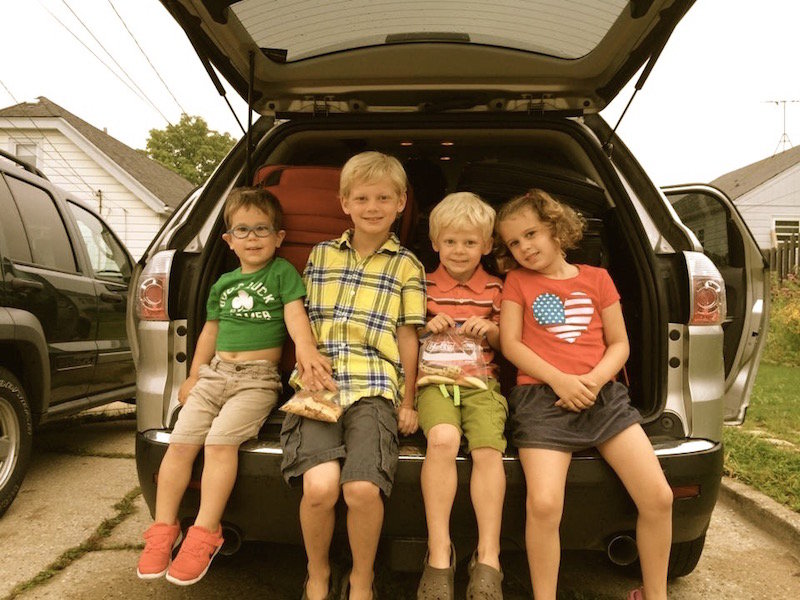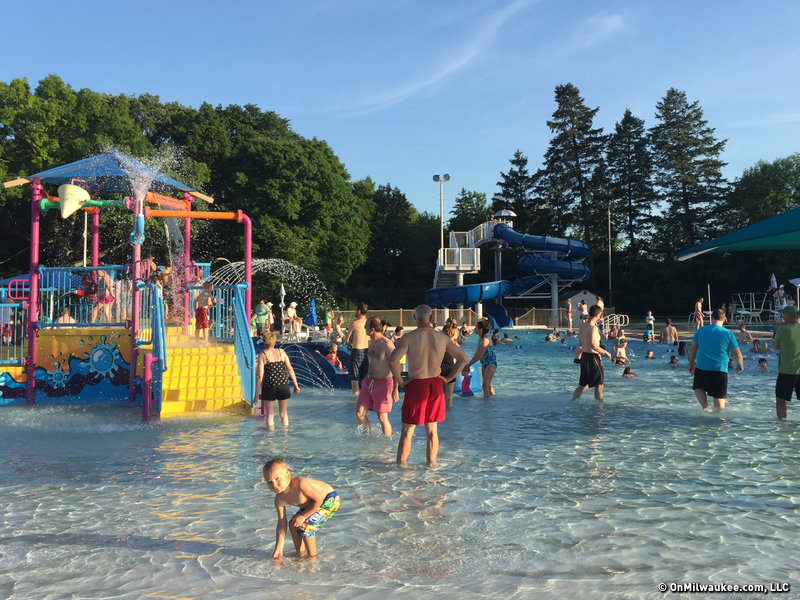Summer is coming – considering the weather, you’ll have to trust me on this – and for thousands of kids, that means school is out for three warm months.
I have four grandkids, three of them boys, and I’ve always been fascinated by how different their summers are from the summers I had when I was a little boy. I don’t think mine were necessarily better or worse, but they sure were different.
I grew up in a lily white suburb, aptly named Whitefish Bay. Steve Ballhorn, Ricky and Jerry Weil, and Mac McClone, along with his sister Patsy, lived across the street. The Drakes – the dad was our dentist – lived next door, and John Saari and Taffy Heidner lived a couple of doors away.
The Holmes sisters, romantically advanced well beyond their years, lived next to the Weil brothers. And we did things that kids today wouldn’t even think about. Here’s 10 ways it used to be and isn't anymore.
1. Cowboys and Indians
The land where Dominican High School is was just a block away. It was a vacant field with a few trees, and that’s where we played Cowboys and Indians. If you won the coin flip, you were the cowboys. The losers were the Indians. We’d start at opposite ends of the field, and the goal was to get to the opposite end without being shot by a cowboy (our guns were old tennis rackets) or being scalped (the tomahawks were made of Fuller Brush relics). The cowboys always won.
2. Uniforms
I played a lot of sports when I was a kid and didn’t wear a uniform of any kind until I was in 8th grade. I played football, basketball and softball from third grade on, all of them at the playground at Richards School. We played strikeout and 500 and real softball with four or five or six on a side. Football was almost always two-handed tag, and in basketball, we all just tried two-handed set shots. Nobody jumped. We all looked like the band of ruffians we were. Shirts and skins was as close as we got to uniforms.
3. Can't buy it? Build it!
My dad was a pole vaulter in college. He wanted his sons to be pole vaulters. So he took us to a carpet store where we bought two bamboo poles that were the centerpiece of carpets and rugs. Then we went home and dug two holes, about six feet apart. We took two two-by-fours and put long nails in them at five feet and then going up by three inch increments until we got to seven feet (dreaming). We used a thin bamboo pole as a crossbar. We stood the two-by-fours up and filled the holes with dirt and packed it down. We took a spade and dug a vaulting box in the backyard. Dad took the first one and went 5-6. It took over a year for me or my brother to match him. Eventually, we both vaulted over 13 feet and my brother went 15.
4. "Bye mom!"
As soon as Dad left for work every day, we’d say, "Bye mom." Then she’d see us again at about 6 o’clock at night. In her later years, my mom would remember that she had absolutely no idea where we were during an entire day in the summer.
5. To tell the truth
About three times every summer, for about five years, Bill Hilgendorf and I pulled the same scam. I told my mom I was sleeping over at his house, and he told his mom he was sleeping over at my house. We’d meet up behind Ott’s drugstore on Silver Spring and spend the night roaming the streets of Whitefish Bay. I don’t think we were looking for anything in particular. But one night, we tried to play tennis with balls we had previously painted with florescent paint. None of our parents ever discovered these little white lies.
6. Lessons schmessons
I wanted to learn how to play golf. One block north of me was St. Monica’s parish, quite off limits for a little Jewish boy. Monsignor Francis Barry used to walk in the athletic field in back and practice his golf swing, hitting seven iron shots. I watched for awhile, and he asked if I wanted to shag balls. I did, and about a month after that, he put a seven-iron in my hand and taught me how to swing. We spent a summer together, and the next summer, Hilgendorf and I rode our bikes (with golf bags) to Brown Deer golf course every single day for a couple of months to play golf.
7. Look at those grades!
When I came home with a bad report card (which was fairly often) my mom and dad railed about how lazy I was. "You can work harder, and you should work harder" became a mantra. They weren’t friendly about it, and they were trying – on some level – to make me ashamed of that report card. They weren’t trying to motivate me. No tutors. I wish they had been more encouraging. I might have done better in school.
8. War
The area where Bayshore Towne Center is was nothing more than a vacant field, overrun with shrubs, trees, boulders and lots of trash. The perfect battlefield. We played war, sometimes with as many as 20 kids on each side. One side were the brave American soldiers. On the other side, we had both Japanese and Nazis. Weapons were pebbles gathered from the ground. Nothing too big so nobody would get too hurt. You could either fire one pebble (a bullet) or a hand full (a grenade). One girl (it might have been Judy Gregg) got hit in the eye and had to go to the doctor. Parents were angry, but nobody told us to stop.
9. Not too smart
When I compare my childhood with childhoods of today, I find myself astounded at how much smarter kids are today. I mean, they are aware of the world around them. They can figure stuff out. They listen and take lessons well. They are relatively obedient. We were none of those things when we were boys. We were just stupid and silly and had no clue about life.
10. Lily white
I never saw a black person until I was a sophomore in high school, except for families that were rich enough to have someone come in to clean the house. The first black people I saw were members of the basketball team from North Division, who had to come to Whitefish Bay to play in a sectional basketball game. Growing up, I had dozens of neighbors who said things about black people that just seemed normal. Kids today are growing up in a world where diversity isn’t a shock, but a normal way of living. Much, much better now.
With a history in Milwaukee stretching back decades, Dave tries to bring a unique perspective to his writing, whether it's sports, politics, theater or any other issue.
He's seen Milwaukee grow, suffer pangs of growth, strive for success and has been involved in many efforts to both shape and re-shape the city. He's a happy man, now that he's quit playing golf, and enjoys music, his children and grandchildren and the myriad of sports in this state. He loves great food and hates bullies and people who think they are smarter than everyone else.
This whole Internet thing continues to baffle him, but he's willing to play the game as long as OnMilwaukee.com keeps lending him a helping hand. He is constantly amazed that just a few dedicated people can provide so much news and information to a hungry public.
Despite some opinions to the contrary, Dave likes most stuff. But he is a skeptic who constantly wonders about the world around him. So many questions, so few answers.







